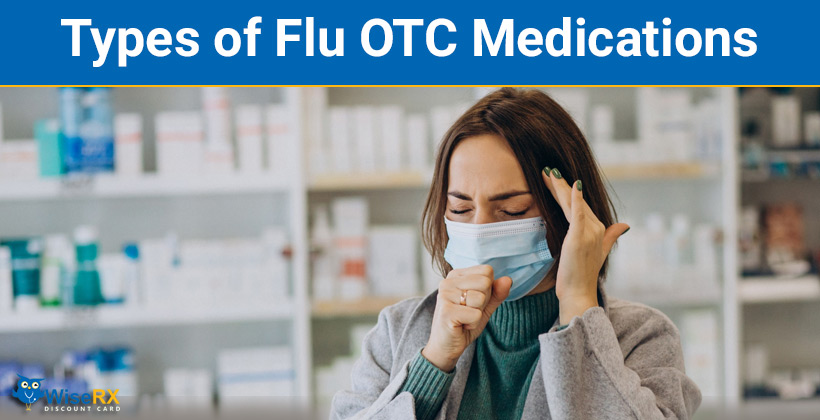
Guide on Choosing the Best OTC Cold or Flu Medication
You can find a wide variety of over-the-counter (OTC) cold and flu medications. It has to do with the wide variety of symptoms you might be looking to improve. Decongestants, for example, can improve stuffiness, analgesics reduce fever and pain, and other types of medications can help ease out other concerns.
You need to find out what cold and flu symptoms are bothering you is the first step to figure out the type of OTC medications that are bothering you. Here are some of the types of OTC medications you need to know:
Decongestants
Congestion is a hallmark symptom of cold and flu. The reason is the dilated blood vessels in the airway and nasal membranes. The work of over-the-counter decongestants is to narrow the blood vessels, decrease inflammation and swelling, and allow the mucus to drain and air to flow.
You can take decongestants orally or in a nasal spray. Oral decongestants include Sudafed PE (phenylephrine) and Sudafed (pseudoephedrine).
Phenylephrine is not controlled and can be found in the OTC medicines of cold and flu at a grocery store or pharmacy. You can find it in the form of quick-dissolving strips, liquid, or tablets.
Pseudoephedrine comes in an extended and regular release liquid and tablets. It comes in a combination of allergy and cold medications. Although it is not an OTC medicine, pseudoephedrine is controlled and kept behind the pharmacy counter.
Analgesics
For body aches, headaches, and fever that come with the flu or cold, OTC medications are known as analgesics are helpful. Common analgesics include:
- Asprin
- Aleve (naproxen)
- Advil (ibuprofen)
- Tylenol (acetaminophen)
If we see, analgesics overall helps to relieve the pain and reduce fever. Acetaminophen and aspirin are generally better to treat headaches and fevers, while naproxen and ibuprofen may be better at reducing pain.
For fevers above 102 F, it is often recommended to alternate between taking ibuprofen and acetaminophen every three hours, especially if the fever continues to rebound as the medication wears off.
Cough Medicine
Treating a cough from the flu or cold might be tricky. You first need to evaluate your cough to determine the type of cough medicine you require. Dry cough may benefit from taking an antitussive cough suppressant, while a productive and wet cough typically requires an expectorant.
Antitussives are helpful to quote down cough and are useful at night when coughing keeps you awake. The generic drug dextromethorphan is one of the popular cough suppressants found in many over-the-counter cough medicine includes – Delsym, Robitussin DM, Mucinex DM, and Tussin DM.
Other than these, you can consult your doctor and ask for their prescription. You can also download a drug discount card for a discount on medicines.
Antihistamines
If you have nasal symptoms including sneezing and runny or stuffy nose, many people turn to antihistamines. Antihistamines are used to treat allergic rhinitis. They work by blocking the receptor for histamine, a chemical released in response to an allergen.
Common antihistamines include:
- Xyzal (levocetirizine)
- Claritin, Alavert, various generics (loratadine)
- Clarinex (desloratadine)
- Allegra, generics (fexofenadine)
- Zyrtec (cetirizine)
- Atarax/Vistaril (hydroxyzine)
- Chlor-Trimeton (chlorpheniramine)
- Benadryl (diphenhydramine)
Multi-symptom treatments
Multi-symptom formulas usually include a combination of expectorants, antihistamines, decongestants, analgesics, and cough suppressants. There are often helpful when you have the flu or cold because they treat many different symptoms in one dose.
You must use multi-drug medication with caution. Do not forget to read the ingredient list to ensure the formula only includes medications that treat your symptoms. You must avoid taking additional medications at the same time to prevent interactions and accidental overdose.
For example, if a medicine contains acetaminophen, remember to not take Excedrin, Midol, or Tylenol that contains acetaminophen. Avoid the intake of a multi-symptom reliever that contains guaifenesin along with the cold syrup, that also has those ingredients.
Conclusion
Few natural remedies help with flu and cold symptoms, but it is best to visit the doctor and get your prescriptions. You must know that some supplements tend to interact with other medications you are on – including over-the-counter ones. If you get the prescription from your doctor, download a free Rx discount card for discounts on prescriptions.


